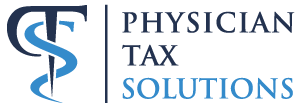Why Doctors Are Taking on Side Gigs and How They Can Save Taxes on Moonlighting
The healthcare industry is known for its demanding schedules and rigorous training, but more and more doctors are branching out into side gigs. Whether it’s consulting, teaching, telemedicine, or even creative pursuits like writing, many physicians are exploring opportunities outside their primary practice. But why are so many doctors taking on side gigs, and how can they maximize their earnings while minimizing their tax burden? Let’s dive in.
Why Doctors Are Exploring Side Gigs
- Diversifying Income Streams: The unpredictability of healthcare reimbursements and rising costs have prompted many doctors to seek alternative income sources. A side gig offers financial security and additional cash flow.
- Passion Projects: Many doctors have talents or interests outside of medicine. Side gigs allow them to pursue their passions, whether it’s writing a book, consulting for startups, or speaking at conferences.
- Burnout Relief: Contrary to what one might expect, having a side gig can actually alleviate professional burnout. By engaging in fulfilling activities outside of their day-to-day roles, doctors can find renewed energy and purpose.
- Building Wealth: For many doctors, side gigs are a way to accelerate their journey toward financial independence, pay off student loans faster, or fund long-term goals like real estate investments or early retirement.
Tax Challenges for Moonlighting Doctors
While side gigs can be financially and personally rewarding, they come with their own set of tax implications. Moonlighting income is often reported on a 1099 form, which makes it subject to self-employment taxes in addition to federal and state income taxes. Without proper planning, doctors could find themselves paying a significant portion of their side income in taxes.
How Doctors Can Save Taxes on Side Gigs
- Leverage Deductions
- Home Office Deduction: If your side gig involves working from home, you can deduct a portion of your rent, utilities, and internet costs as a home office expense.
- Equipment and Supplies: Expenses related to your side gig, such as a laptop, software, or professional memberships, can be written off.
- Continuing Education: Courses, certifications, and training programs related to your side gig are tax-deductible.
- Establish a Business Entity
- Forming an LLC or S Corporation for your side gig can provide significant tax advantages. For example, an S Corporation allows you to split your income into salary and distributions, reducing the amount subject to self-employment tax.
- Utilize Retirement Accounts
- Solo 401(k): As a self-employed individual, you can contribute to a Solo 401(k), which offers higher contribution limits compared to traditional IRAs.
- SEP IRA: This is another retirement savings vehicle with generous contribution limits for self-employed individuals.
- Track Expenses Religiously
- Use accounting software or apps to track all your side gig expenses. Proper documentation is essential for claiming deductions and avoiding issues with the IRS.
- Hire a Tax Professional
- Navigating the tax implications of moonlighting can be complex. A CPA experienced in tax planning for medical professionals can help you structure your income and deductions to minimize your tax liability.
Additional Benefits of Side Gigs for Doctors
- Networking Opportunities: Side gigs often open doors to new professional connections that can benefit a doctor’s primary practice.
- Skill Development: Teaching, consulting, or writing can enhance skills that are transferable to their medical careers.
- Work-Life Balance: By choosing side gigs they’re passionate about, doctors can achieve a better balance between work and personal fulfillment.
Final Thoughts
Side gigs are becoming an increasingly popular choice for doctors looking to diversify their income, pursue passions, or build wealth. However, without proper tax planning, the financial benefits can quickly diminish. By leveraging deductions, setting up the right business structure, and consulting with tax professionals, doctors can make the most of their moonlighting endeavors.
If you’re a doctor considering a side gig or already have one, proactive tax planning can make a significant difference in your financial outcomes. Reach out to a qualified CPA to discuss how you can optimize your taxes and maximize your side hustle earnings.
For expert tax planning and advice, contact physiciantaxsolutions.com
This post serves solely for informational purposes and should not be construed as legal, business, or tax advice. Individuals should seek guidance from their attorney, business advisor, or tax advisor regarding the matters discussed herein. physiciantaxsolutions.com assumes no responsibility for actions taken based on the information provided in this post.
